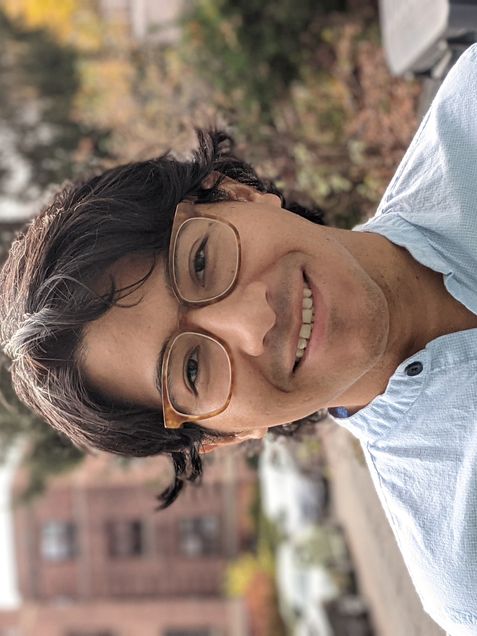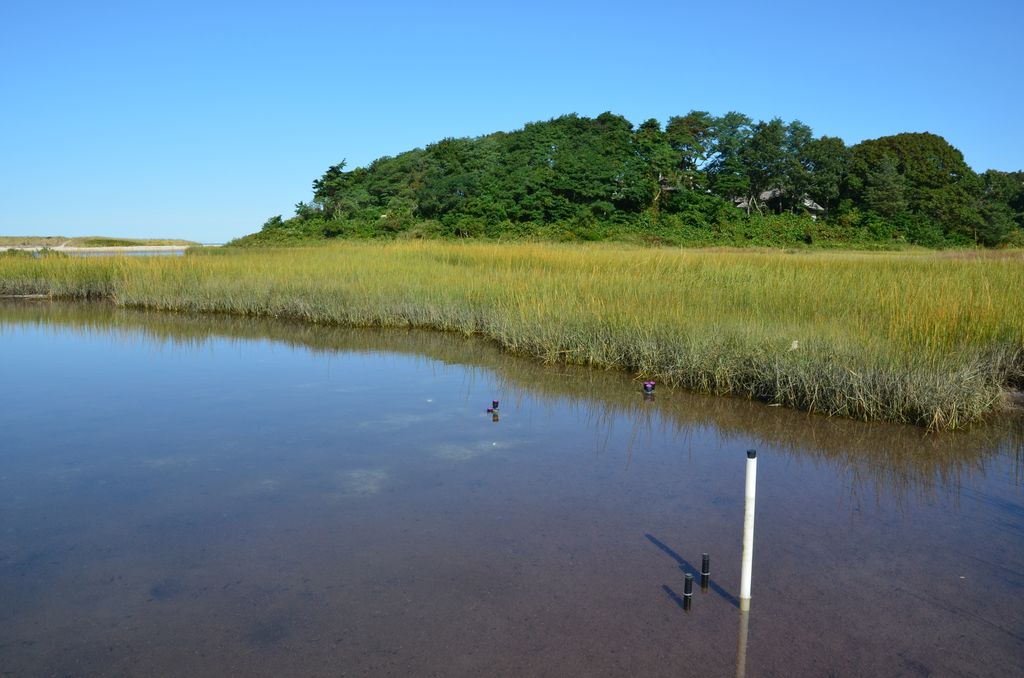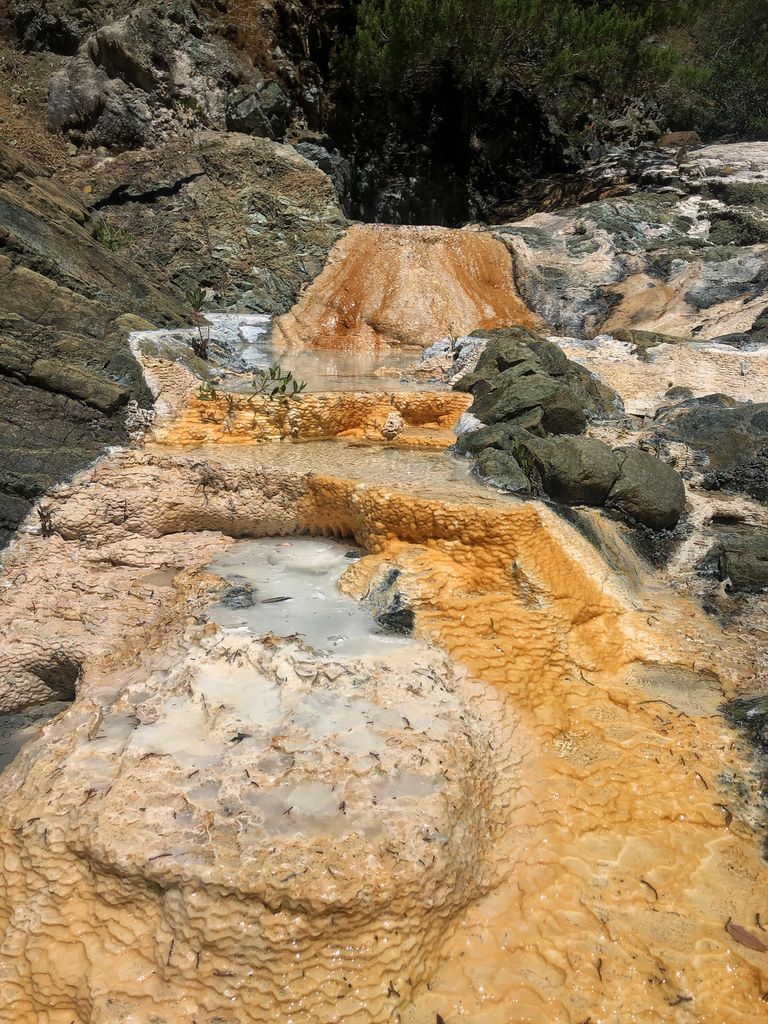Kailyn Doiron Receives Fujifilm Fellowship
Congratulations to Kailyn Doiron for receiving the Summer 2021 Fujifilm Fellowship! Kailyn is an alum of the BMB program, graduating with her BA in BMB and MA in Biotechnology in 2017. Since 2019, Fujifilm company has sponsored a fellowship award at Harvard Medical School in which 11 Ph.D. candidates are funded for 2 years worth of research to promising students from various life science Ph.D. programs. This fellowship program specifically aims to provide young scientists with the specialized skills required to translate their research findings into practical medical applications for patients. In addition to funding, Fujifilm Fellows are enrolled in a specialized program called the Therapeutics Graduate Program, a new curriculum focusing on pharmacology, toxicology, and drug discovery.
Kailyn Dorion is a first-generation college student and third-year student in the Systems, Synthetic, Quantitative Biology Ph.D. Program at Harvard Medical School. In the HMS Blavatnik Institute, she currently works in the lab of Dr. Pamela Silver, Elliott T., and Onie H. Adams. Dorion desires to develop protein-based therapeutics to provide effective treatment for chronic and inflammatory pain.
Jerry Chen Featured in Science
Congratulations to Dr. Jerry Chen on his recent study published in Science. In this study, Dr. Chen highlights how the brain incorporates external stimulus and internal memory to create the sense of touch. By utilizing mice models, Dr. Chen and his team from BU and the Allen Institute of Brain Science located a somatosensory cortex circuit responsible for quantifying sensory information. Dr. Chen’s study improves our understanding of a range of neurological disorders and neuropsychiatric diseases, like strokes and autism spectrum disorder, and may pave the way for selective treatments and interventions for altered sensory perception.
To read a more detailed summary of Dr. Chen’s study from BU Today, click here.
To read Dr. Chen’s new article in Science, click here.
BU Research Team Awarded 2021 Campus Sustainability Research Award
|
|
|
A team of researchers, co-advised by Dr. Pam Templer of Biology and Dr. Lucy Hutyra of Earth & Environment, were selected to receive the 2021 Campus Sustainability Research Award. This award is given by the Association for the Advancement of Sustainability in Higher Education (AASHE) and "honors higher education institutions for successful implementation of projects that advance sustainability". Among the researchers on this team were several alumni of the Templer Lab including Marissa Lee, Vivien Chen, and Ashley Bang. Wiley Hundertmark was another BU alum on this project and was supported by a BU Urban Climate Initiative grant.
The team's paper is titled, "Influence of landscape management practices on urban greenhouse gas budgets". You can read the paper here and learn more about the AASHE award here.
Fall 2021 Outstanding Biology Learning Assistant Awards
The Biology Department recognized the hard work and innovation of all of our Learning Assistants (LAs) by presenting “The Outstanding Learning Assistant Award” to a group of Biology LAs for the fall 2021 semester. These students presented a poster that was judged by the Biology Research & Honors Committee to best outline procedures that will improve teaching in our undergraduate courses. Financial support for this award is made possible by Professor Emerita Elizabeth Godrick.
Top award:
Cayla Bilyeu, Isabel Jang, Vaughn St. Marie, and Nikolas Martinez received the top award for Biology LAs for their presentation on the topic of templates for how to survive lab with Easter eggs. Here is the abstract from the group's presentation:
BI211/315 Physiology lab is a teamwork-based project course with intensive writing assignments. We find that many students are not familiar with concepts surrounding experimental design, lab procedures and statistical analysis. Students have expressed concerns that they are overwhelmed by the number of resources that are available to them and often fail to follow directions. To solve this problem and to address students’ request for clearer templates, existing assignment templates will be condensed and simplified to provide students with a single resource that clearly lays out requirements.This makes it essential that students carefully read through these resources to gain understanding of the lab course. In addition to templates, a virtual easter egg hunt will be implemented that would be spread throughout their resources to ensure compliance in preparation. Consequently we will be re-purposing the already implemented Kahoot quiz game system to test this compliance. To ensure proper execution of the Kahoots, an instruction guide for the LAs will give advice on how to engage students during Kahoot, provide key points to mention about each assignment, and go over frequently asked questions from previous years. The three of these additions will be synchronized to provide a more streamlined experience for students.
A close runner-up:
Tanner Boyd, Emma Cho, Maddie Hurysz, and Ethan Lieberman were the runners up for their presentation on using Kahoot to promote BI 107 lab participation. Here is the abstract from the group's presentation:
In BU introductory biology, lab sections allow students to engage with the course material through hands-on learning and experimentation. These lab sections include teaching powerpoints and class discussions which reiterate concepts pertaining to the lab’s topic and preview the experimental procedures. Generally, participation features the same, small handful of students answering the instructor’s questions. In order to revitalize this initial lab segment, Kahoot, an online, interactive learning game, will be used to encourage students to participate in discussion, and inform instructors of which material needs reinforcement. LAs will create and lead weekly Kahoot games to encourage greater teaching opportunities for them. Each student will sign on with their name and participation will be monitored within the game that tracks their answers and progress. Kahoot will be used to monitor attendance, thus incentivizing participation. This model can be implemented as a means of consistent check-ins and reinforcement of material, or at the end of the lecture to summarize the main points before the students begin in-class experimentation. Because of its active stimulation and class-wide participation, we hypothesize that implementing Kahoot will not only promote engagement, but also solidify understanding and give weekly feedback to the instructors.
Congratulations to the award-winners and thanks to all the hardworking LAs who participated in the presentations. More information on the Learning Assistant Program can be found here.
Alejandro Rondón Ortiz Wins Tau Leadership Award

Alejandro Rondón Ortiz, Biology PhD candidate of the Emili Lab, was recently awarded a Tau Leadership Award. The Rainwater Tau Leadership Fellows is funded by the Rainwater Charitable Foundation. This foundation invests in early-career scientist to promote the next generation of leaders in neurodegenerative disease research and beyond.
“These early-career leaders in research will know their value goes beyond the bench, and that their skills and expertise can make an impact on their community and inspire future scientists”
- Dr. Amy Rommel, Scientific Program Director for the Rainwater Charitable Foundation
Alejandro was selected as a winner because of his scientific mentorship and community outreach. In particular, Alejandro mentors women and members from underrepresented groups to motivate and to support their careers in STEM.
Alejandro is conducting research in both the Center for Network Systems Biology and the Laboratory of Neurodegeneration from Boston University (led by Andrew Emili and Benjamin Wolozin, respectively). He holds a PharmD degree from Universidad Catolica de Santa Maria, Peru, and an MS in Pharmacology from MCPHS University, Boston.
Alejandro is interested in neurodegenerative disorders (particularly in tauopathies). Tauopathies are a group of neurodegenerative disorders that have a common denominator: the misfolding of Tau protein (e.g. Alzheimer’s disease, progressive supranuclear palsy, cortico-basal degeneration, and others). At Boston University, he uses multidisciplinary approaches to explore tauopathies at the molecular level, and hopes his findings will contribute to a better understanding of these neurodegenerative disorders.
Congratulations, Alejandro!
Pam Templer featured in the Brink

A team of researchers, including Dr. Pam Templer, plans to break boundaries in an attempt to emphasize the links of illness and climate change. Some of the consequences this group has outlined include “injuries or deaths linked to severe storms, extreme heat, or uncontrollable forest fires; heightened risks for infectious diseases transmitted by ticks, insects, and other animals; increasing rates and severity of allergies; rising respiratory illness and cardiovascular diseases linked to deteriorating air quality; less access to safe drinking water and sanitation; and nutritional shortages.” Although these implications have very serious consequences, this group is primarily focusing its efforts on preventing further carbon emissions and reducing the atmosphere’s current carbon load.
To read the full article, click here.
Alyssa Helmling and Vivian Shen Receive the 2021/2022 Marion Kramer Award
|
|
|
|
We are excited to announce that Alyssa Helmling and Vivian Shen are the recipients of the 2021/2022 Marion Kramer Award!
The award was established in 2001 in honor of Dr. Marion Kramer, who earned her Bachelor’s degree in Biology from BU in 1963 and continued to have an extensive and successful career in biology and medicine. This award recognizes high-achieving female juniors and seniors majoring in Biology.
Alyssa is a senior majoring in Biology with a Specialization in Ecology and Conservation Biology.
“During my freshman year, Dr. Richard Primack lectured in my BI107 class and described his research using Thoreau’s writings to study climate change. I approached him afterward to talk with him about joining his lab, and from this meeting, I launched one of the most important mentor relationships of my life. Working with Dr. Primack and the Primack Lab on climate studies and plant phenology was one of the most impactful experiences during my first year at BU. I broadened this research foundation while studying abroad in Ecuador by completing projects in tropical ecology with Dr. Kelly Swing. I am now engaged in my own research project with the Primack Lab to study the pandemic’s impact on noise pollution in the Boston area. Noise pollution affects human and environmental health, making studies like these valuable in urban settings like Boston. This research has been funded through UROP and the Campus Climate Lab, and we plan to use our findings to make suggestions to the University about how to both reduce noise pollution and foster a healthy soundscape. I plan to apply to medical school after graduation.”
Vivian is a senior candidate in our BA/MS in Biology program. She is pursuing a BA in Biology with a specialization in Cell Biology, Molecular Biology, and Genetics and an MS in Biology.
“Growing up, I’ve always had a passion for science and found biology particularly fascinating, specifically the intricate functions of the human body at the cellular level. Learning about current research and innovations in the field through my Biology courses at BU further stimulated my curiosity in research. My sophomore year, I began working in the Fuxman Bass Lab and this past summer, I was fortunate enough to receive UROP funding. My current project focuses on the inhibitory effects of viral peptides from numerous deadly human viruses on immune gene expression and I plan to further characterize the mechanisms by which viruses evade immune antiviral responses. I am currently in the BA/MS in Biology program and after graduating, I plan on applying to medical school to continue pursuing my love for science.”
Congratulations to Vivian and Alyssa on their hard work and the 2021/2022 Marion Kramer Award!
Daniel Segré featured in Nature Protocols

Boston University Professor Daniel Segré authored a study that is now featured in Nature Protocols. The article, “A metabolic modeling platform for the computation of microbial ecosystems in time and space (COMETS)” demonstrates how a genomic-scale modeling system has become a useful tool for modeling cellular and physiology and growth. Segré describes how the computation of microbial ecosystems in time and space (COMETS) can accurately determine a biophysical model of microbial growth, evolutionary dynamics, and enzyme activity.
To read the full article, click here.
Jeff Marlow Receives DOE Grant
Congratulations to Dr. Jeff Marlow for receiving a grant from the DOE for his research on microbial communities. The Marlow Lab's research seeks to understand microbial communities and how they they contribute to Earth's environmental processes, as well as how they support life on Earth. Dr. Marlow and his team focus on microbial communities in hard to reach places, like the deep sea and volcanoes.
This DOE grant will allow the Marlow Lab to return to the Sippewissett Salt Marsh on Cape Cod, which has high levels of microbial genetic diversity. Dr. Marlow and his team will study which microbes are active under different conditions, like which are active during the day and which are active at night, and how that affects the overall function of the microbial communities.

Congratulations, Jeff!
Jeff Marlow Receives Funding from Scialog
Assistant Professor Jeffery Marlow is among the 18 early-career researchers to get funding from Scialog: Signature of Life in the Universe, a new Research Corporation for Science Advancement initiative designed to bring us closer to answering basic questions about the possibility of extraterrestrial life. A total of eight teams of scientists will split a total of $1.1 million in awards granted by RCSA, the Heising-Simons Foundation, NASA, and The Kavli Foundation.
Dr. Marlow was awarded this grant to help fund a collaborative astrobiology project with Dr. Laurie Barge at NASA’s Jet Propulsion Lab at the California Institute of Technology. The project will use electrodes to grow microbes and print different minerals onto microbes to investigate the microscale relationships between the microbes and the minerals that are available on other planets.

Congratulations, Jeff!



